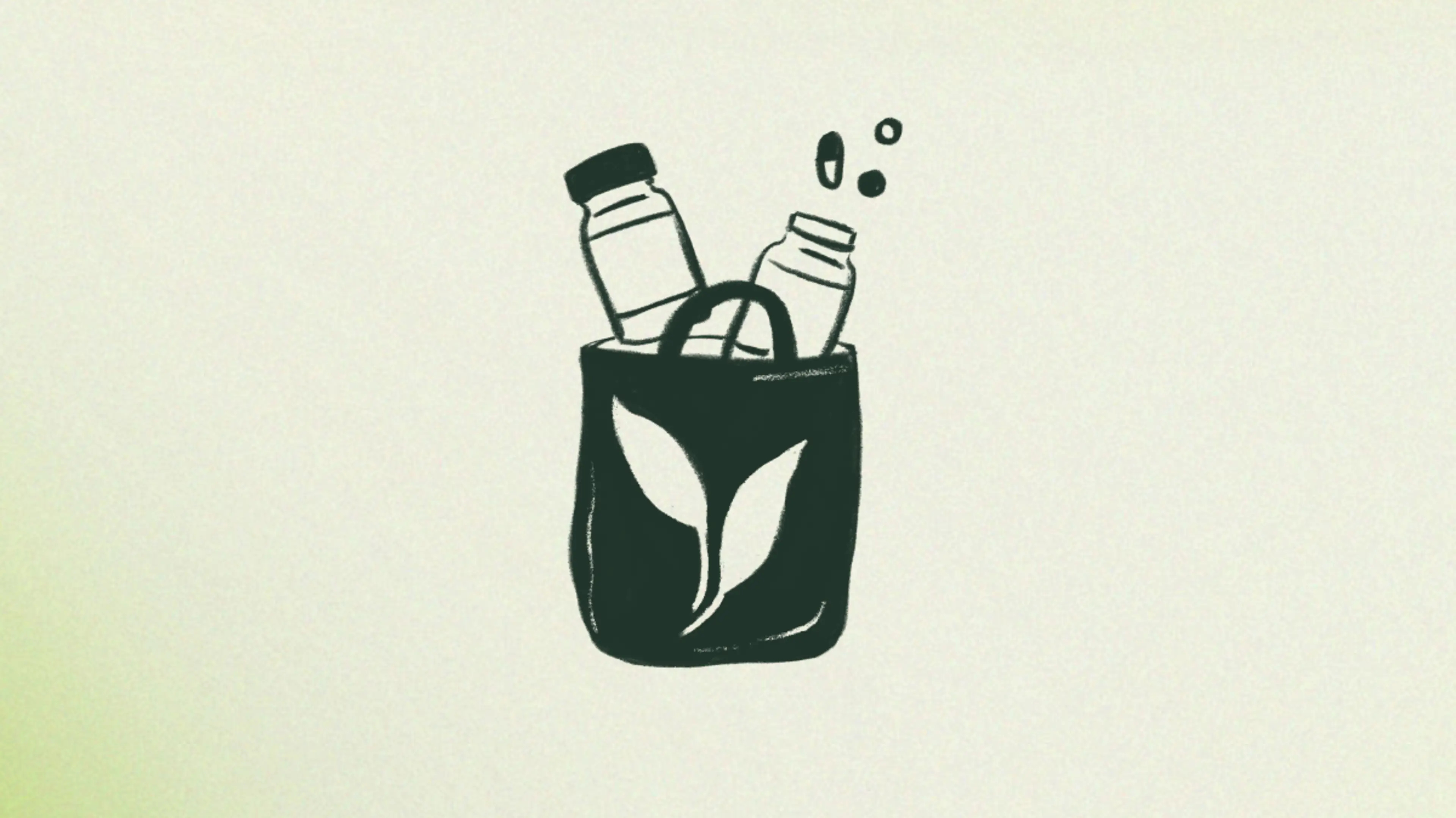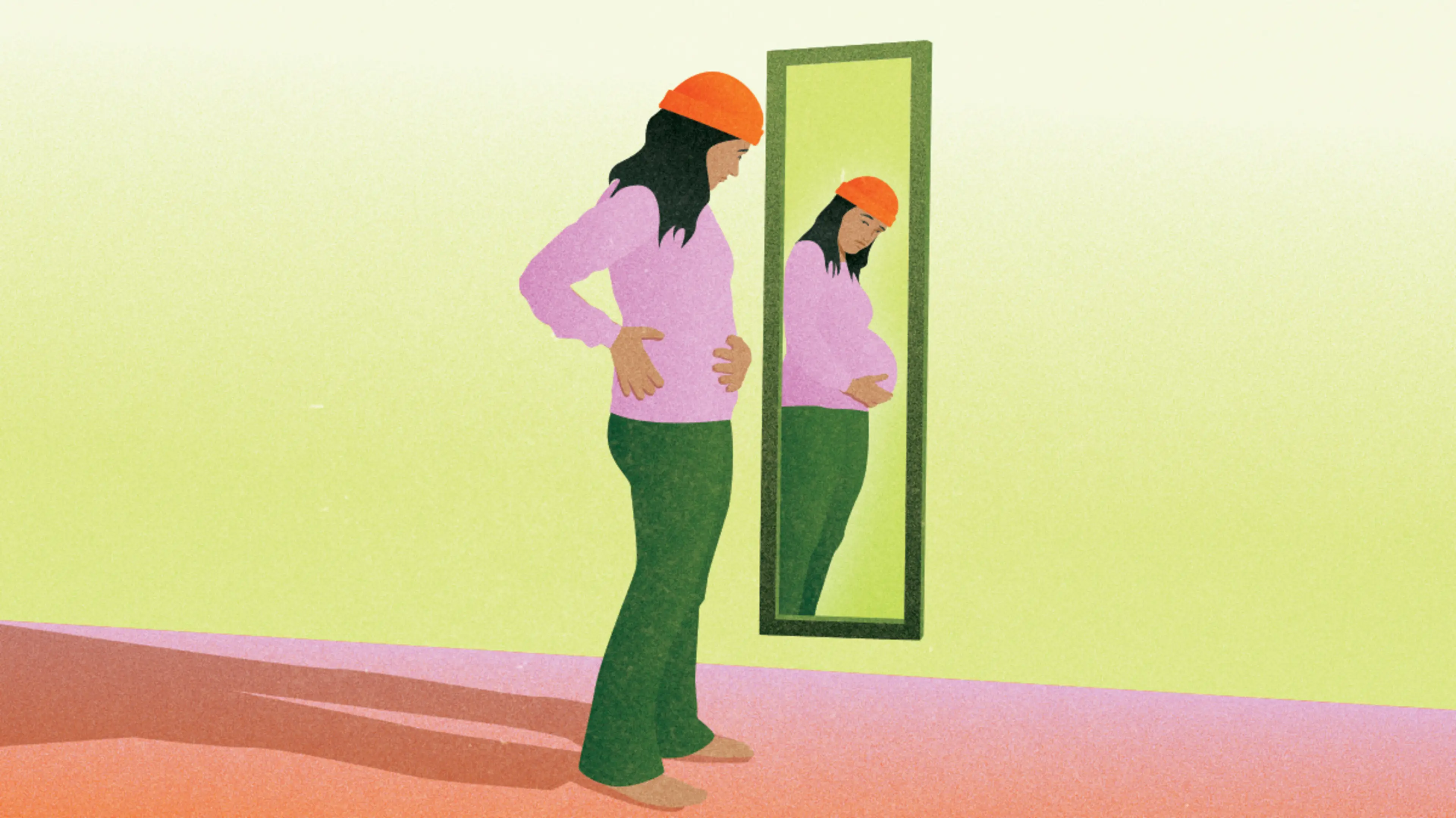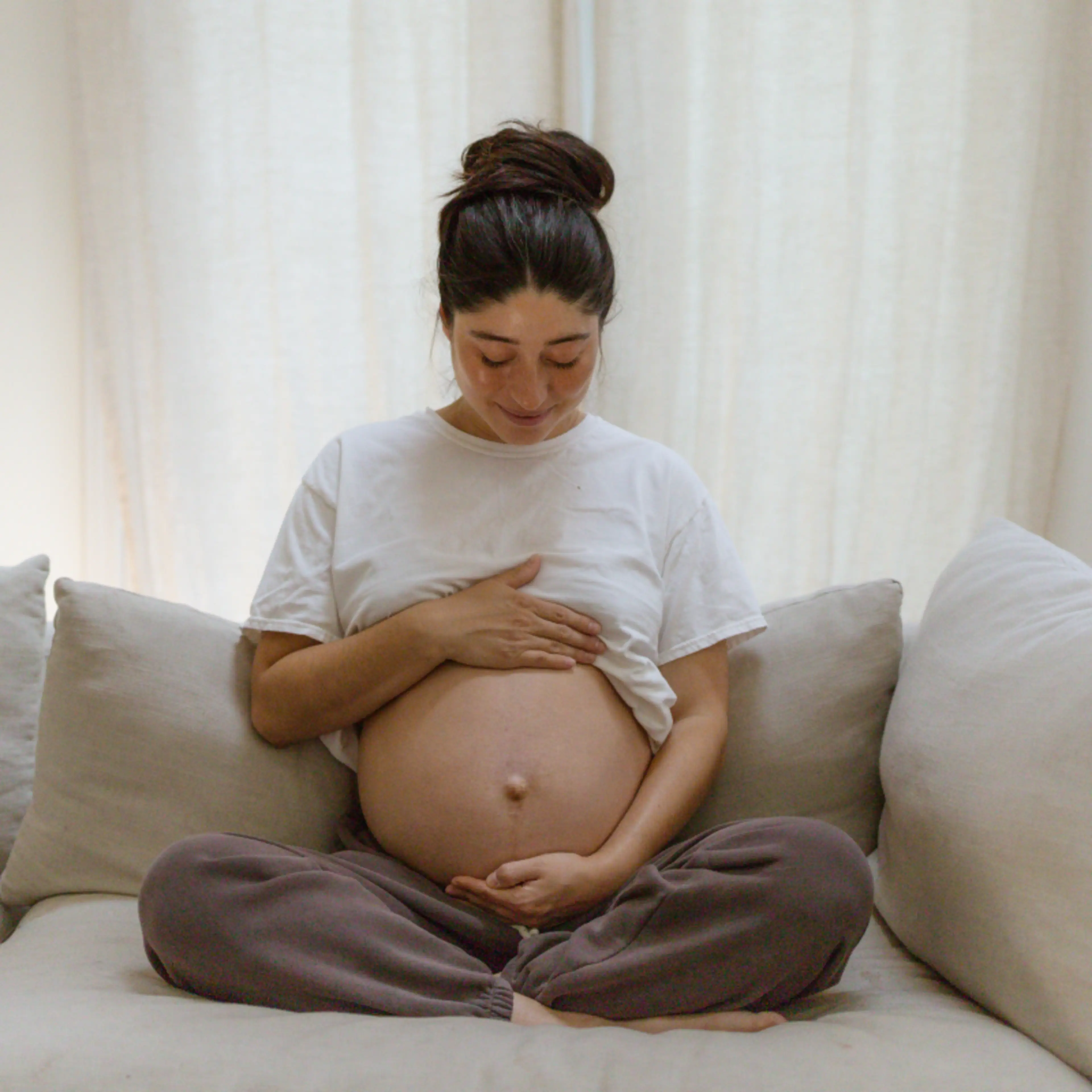TLDR: Even though stress is normal and pregnancy is viewed as a positive life event, high levels of stress can have an adverse effect on mothers and fetuses during pregnancy. See why stress can increase during this time, the mental and physical effects it can have, and recommendations for managing it, including meditation and deep breathing.
Every person has experienced stress at some point in their life. Stress is normal, and it’s also subjective, which has caused researchers to have trouble defining it. Pregnancy is one situation where stress levels can be high even though it’s an exciting time. The idea of being responsible for growing, carrying, and nurturing a human being can feel overwhelming and uncertain, all of which can contribute to feelings of anxiety.
Normal levels of stress are necessary for good health and are even important for your growing baby1 . While some stress may not necessarily be problematic, high levels of maternal stress can negatively impact fetal growth and development2 . Because of this, it’s a good idea to develop an awareness of your stress during pregnancy and to learn a few techniques you can use to bring yourself back to calm.
What Is Stress During Pregnancy?
Stress often gets a bad reputation, but what is stress exactly? Simply put, stress occurs when we perceive some type of threat3 . Because pregnancy is a unique time for the body, stress may look different than at other times. Often, we perceive stress negatively, and research suggests stress is linked to anxiety and depression4 , as well as poorer physical health and social relationships.
Fortunately, there are a handful of relatively simple, scientifically-backed strategies to manage stress during pregnancy. But first, it’s important to be informed about the causes of stress and how it affects your body and your developing baby during pregnancy so you can understand why stress management during this time and beyond is important in the first place.
What Causes Stress During Pregnancy?
Everyday stress can come from a variety of sources, including relationships, jobs, finances, living conditions, and past trauma. When you’re pregnant, these stresses might be magnified—you may worry about whether you need to move to accommodate your growing family, or about whether you can care for a child financially. This is all normal. It’s a common misconception that positive life events, like getting married, buying a home, or going on vacation aren't stressful. All big life changes can be stressful because they shake up our routines.
What's Normal Stress During Pregnancy?
Some stress is normal, especially during pregnancy. More often than not, you are the best judge of whether you’re experiencing too much stress. Of course, you should check in with your healthcare provider if you’re worried your stress level is too high. They may recommend trying certain strategies or meeting with a therapist to create a tailored stress management treatment.
Knowledge is power when it comes to stress management. Staying well-informed and routinely assessing your stress level may help you better manage your stress and contribute to a healthier, happier pregnancy.
What Types of Stress Can Impact a Baby?
The effects of the stress response system occur throughout the body, and there’s evidence that fetuses can pick up on maternal stress levels in the womb. Dr. Catherine Monk and colleagues found evidence that fetal heart rate is altered when mothers are exposed to stressful tasks.5 In a study, pregnant women with high levels of anxiety underwent a stressful task and researchers found that their fetuses had a significantly higher heart rate than the fetuses of women whose anxiety level was below average in response to the task. This suggests that fetuses can sense and respond to their mother’s elevated stress levels.
On a larger scale, evidence suggests that maternal exposure to stressors during pregnancy —ranging from the anxiety of daily hassles to major environmental stressors like a natural disaster—can hurt children’s mental health and behaviors in their early life. That's why it's even more important to find ways to manage your stress during your pregnancy. If you're worried you may be worrying too much, bring it up to your doctor.
The Physical Effects of Pregnancy Stress
Although stress can sometimes be visible, the majority of the stress response happens within the body. Stress affects nearly every bodily system. The fight or flight response6 is what kicks into high gear when we have to slam on our brakes suddenly to avoid a crash or jump out of the way of a bicyclist. Hormones, as well as nerve signals that take place throughout the body, are the primary drivers of this response. When this system kicks in, you experience a range of things in your body—suddenly your heart speeds up, muscles become tense, pupils dilate, breathing becomes more shallow, blood pressure increases, and glucose is secreted by the liver.
Once the stressor subsides, it’s the job of the parasympathetic nervous system7 to calm your body down and restore it to its ideal level of functioning. It does things like constrict the pupils, decrease the heart rate, relax muscles, and resume gastrointestinal function.
How Stress Affects Your Fetus
There are several ways in which stress can affect your body and your developing fetus, and it’s mainly via the all-important placenta. During pregnancy, an enzyme in the placenta protects the developing fetus from maternal cortisol. When maternal stress levels are high, some evidence shows that greater levels of cortisol are transmitted to the fetus, disrupting the growth of its endocrine system—the same system that will help that child manage stress later in life. Because the placenta is also responsible for supplying the fetus with nutrients, there’s also a chance that poor maternal mental health and diet may negatively impact blood and nutrient supply to the uterus, hurting the fetus. Here’s how those biological mechanisms can alter fetal development.
A process called “signaling” shapes fetal development; through signaling, a fetus learns about its future environment, like whether it’s safe or dangerous, or whether food will be abundant or scarce. This is fetal programming, which also marks the creation of the baby’s organs and tissues. If there are problems during pregnancy, fetal programming can dramatically change, maybe even altering gene expression.
How Meditation Can Help
Fortunately, there are a variety of evidence-based techniques that can help reduce stress during pregnancy. You may have tried some of these techniques already and didn’t even know! Here are a few that can help:
Deep breathing: This is when the breath is directed into the abdomen. Although you may feel some relief after taking just a single deep breath, you can also try to practice it for several minutes, several times daily.
Progressive muscle relaxation8 : Here’s another technique for managing stress during pregnancy. This involves tensing and releasing muscle groups while focusing on any feelings of tension and relaxation. Also, mindfulness-based stress reduction9 , a structured program that focuses on mindfulness meditation, and cognitive behavioral therapy10 , a specific type of psychotherapy focused on cognitive and behavioral techniques, have both been shown to be associated with stress reduction.
Meditation: There’s research on the impact of mindfulness and meditation on stress. Meditation has been shown to reduce blood pressure, stress, and a host of mood-related disorders—it can even help manage bipolar disorder. Further, the practice of meditation has been associated with greater immunity, lower pain sensitivity and intensity, and better sleep quality.
There are many benefits to practicing meditation and mindfulness during pregnancy. Mindfulness practices during and after pregnancy have been linked with reduced depression, stress, and anxiety levels. Meditation also has been shown to reduce the likelihood of preterm birth11 in a study among women who engaged in meditation during pregnancy. Of the pregnant women who meditated, only 6% of women gave birth prematurely, compared with 16% of women with no mindfulness education. Together, this evidence suggests that having mindfulness and meditation practice during pregnancy can yield positive benefits for you and your baby.












